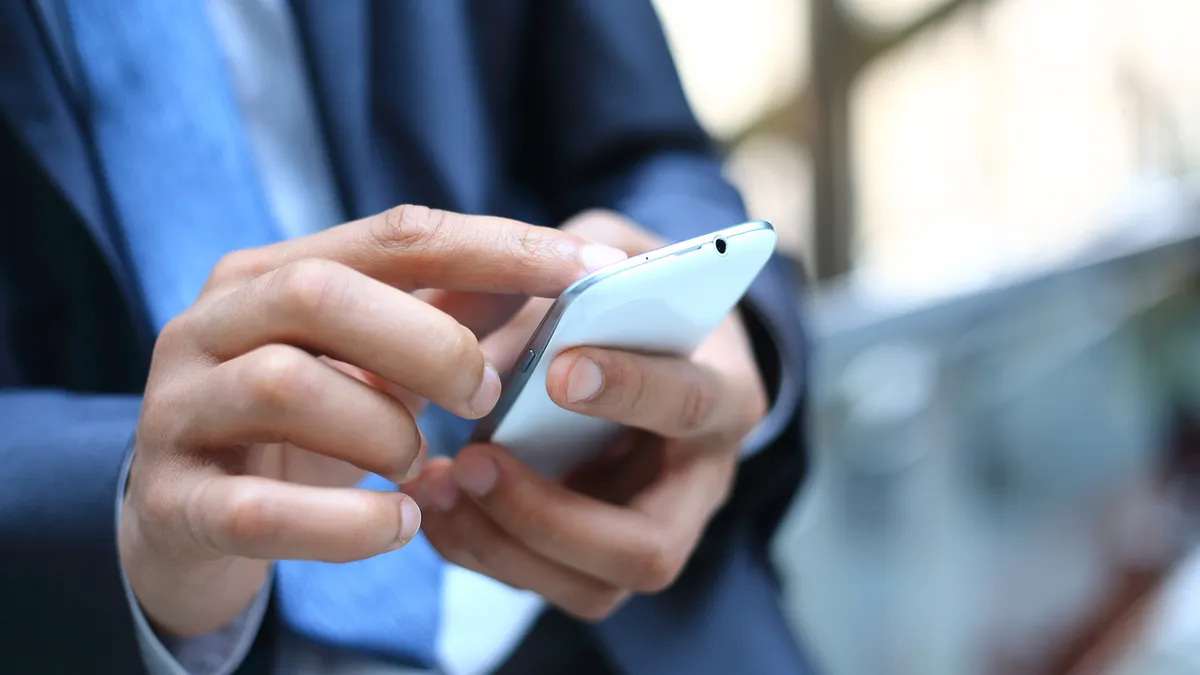Dive Brief:
- High school seniors across Washington state can receive reminders about important college financial aid deadlines from a chatbot, called Otter.
- The chatbot can also answer students' questions about the financial aid process. If it doesn't have an automated response, it will connect the student with a staff member from the Washington Student Achievement Council (WSAC), which worked with AdmitHub to develop the program.
- Implemented last November, it is the latest test of whether large-scale nudging efforts can influence college-going behavior, something experts say may require more customization than such campaigns tend to allow.
Dive Insight:
The new program aims to get more high school students in Washington to apply for and receive federal and state financial aid. The state is currently ranked 39th in the nation for its share of high school seniors — around one-third — who've completed the FAFSA, potentially leaving millions of aid dollars on the table.
The chatbot rollout precedes the expansion of a college aid program in the state. Beginning this fall, students from families earning 55% or less of Washington's median income will have their tuition fully covered at the state's public colleges and universities.
Michael Meotti, executive director of WSAC, sees Otter as a way to provide seniors with individualized support that can help them apply for financial aid. "It was an intriguing solution because we know texting is the way to reach this population — not email, not snail mail," he said in an interview with Education Dive. "Texting is the best conduit."
So far, the Otter chatbot has attempted to connect with some 10,000 seniors in Washington state. About 4,000 students have responded or asked it questions, and more than 500 have had between six to 10 interactions with it, Meotti added.
This summer, the state will review how the chatbot impacted whether students applied for financial aid, making it one of the latest test cases of the effect of large-scale nudging initiatives.
Colleges, too, have been using chatbots to help answer students' questions and decrease the workloads of advisers and other campus workers.
For instance, Winston-Salem State University, in North Carolina, launched a chatbot in the fall of 2017 as part of a larger effort to guide students through the enrollment process. After its rollout, 74% more freshmen fully met their financial requirements when they came to campus.
Other institutions have used them to reduce summer melt and increase retention. Last fall, Blackboard added a chatbot to its learning management system that can answer several types of questions from students, including about deadlines and their financial aid.
However, recent research has cast doubt on the idea that such initiatives can influence whether a student enrolls in college or applies for financial aid. Some studies have suggested they may not have worked because students lacked a personal connection with the source of the nudges.
One study published last year seems to support that idea. It found that high school seniors who received text-based nudges from their counselors were 17% more likely to complete their financial aid applications and 8% more likely to enroll in college than those who didn't.
"Not all nudges are created equal," said Drew Magliozzi, co-founder and CEO of AdmitHub, in an interview with Education Dive. "Some of them … are sent to the wrong audience with the wrong message at the wrong time, and those do not work."
Correction: An earlier version of this article misstated who was eligible for full-tuition grants under Washington state's new aid program. It has been updated.










